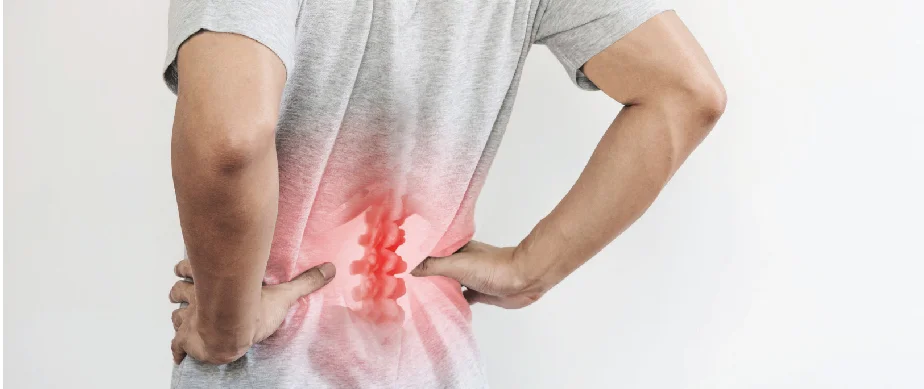 21, September 2023
21, September 2023
Spine Surgery: Who Can Benefit from It
The spine is the primary support structure of the musculoskeletal system, which plays a crucial role in supporting our body's structure and facilitating movement. However, there are various conditions that can affect the spine and prevent it from functioning optimally, thereby negatively impacting one's quality of life. Fortunately, most of these problems can be managed with timely and proper medical intervention. Doctors initially recommend medication and physiotherapy, however, the best spine surgeons suggest that when conservative treatments fail to provide relief, spine surgery emerges as a potential solution.
Spine surgery encompasses a wide range of medical procedures aimed at addressing various spinal disorders and conditions. These disorders can include herniated discs, spinal stenosis, scoliosis, spinal fractures, and more. While spine surgeries are generally perceived to be complex and extensive, advancements in medical technology and surgical techniques have paved the way for minimally invasive options, reducing risks and recovery times. Spine surgery treatment in India is offered at all the leading hospitals.
Why Best Spine Surgeons May Recommend Surgery
Various conditions for which the best spine surgeons may recommend you opt for surgery include:
1. Degenerative Disc Disease: As we age, the intervertebral discs that provide cushioning between our vertebrae can degenerate, leading to pain and reduced mobility. This can also be a result of wear and tear caused by repetitive movement or rigorous physical activities. For individuals who find little relief from conservative treatments, spinal fusion or artificial disc replacement procedures can provide much-needed relief.
2. Herniated Disc: A herniated disc occurs when the soft inner core of a spinal disc protrudes through its outer shell, putting pressure on nerves and causing pain. When pain persists despite non-surgical treatments, minimally invasive procedures like discectomy or microdiscectomy can effectively alleviate the pressure and pain.
3. Spinal Stenosis: Spinal stenosis, a condition characterized by the narrowing of the spinal canal, can lead to nerve compression and pain. When pain restricts daily activities, surgical options like laminectomy or spinal decompression can help to open up the spinal canal, providing relief and improving mobility.
4. Scoliosis and Kyphosis: Abnormal curvature of the spine, as seen in scoliosis and kyphosis, can cause discomfort and impact breathing, thereby drastically affecting the quality of a person’s life. Severe cases may necessitate surgical intervention, often involving spinal fusion, to correct the curvature and enhance the patient's posture and comfort.
5. Spinal Trauma: Accidents or falls can result in spinal fractures that might require surgery to stabilize the spine and prevent further damage. Surgical procedures in such cases involve realigning the spine and using implants to ensure stability during the healing process.
6. Tumor or Infection-Related Cases: Spinal tumors or infections can lead to excruciating pain and potential damage to the spinal cord. Surgical removal of tumors or infected tissue, followed by stabilization of the spine, can relieve pain and prevent further complications.
7. Failed Previous Surgeries: In some cases, individuals who have undergone previous spine surgeries might continue to experience pain or complications. Revision spine surgery might be considered to address any unresolved issues from the initial procedure.
8. Neurological Deficits: When spinal conditions lead to neurological deficits such as weakness, numbness, or loss of bowel/bladder control, urgent surgical intervention may be required to prevent permanent damage. This generally involves therapeutic interventions like epidural stimulation.
Rehabilitation After Spinal Surgery:
Post-spine surgery, rehabilitation is crucial. It involves tailored exercises, physical therapy, and gradual activity resumption. This aids in restoring strength, flexibility, and function while minimizing complications. The rehabilitation process also addresses pain management strategies and provides psychological support. Compliance with post-operative instructions and engaging in physical therapy sessions empower patients to regain independence and resume daily activities.
If you are experiencing any spine problem that is not responding to medication, spine surgery treatment might be the best option for you. Consult the best spine surgeons in Delhi to get yourself evaluated.
 By -Dr Aaksha Shukla |
September 21, 2023 | 9 Min Read
By -Dr Aaksha Shukla |
September 21, 2023 | 9 Min Read
What is the Treatment for Dementia?
How to Cure Headache: Effective Remedies and Prevention Tips
How to Choose the Best Neuro Rehabilitation Centre in India?
What is Minimally Invasive Spine Surgery?
Best Neurology Hospital in India for Your Needs
Knee Arthroscopy Cost in Delhi, India
Shoulder Arthroscopy Cost in Delhi, India
What Is The Role Of The Neurologist In DBS Surgery?
Spine Surgery Cost In Delhi, India
What is the Recovery Time for DBS Surgery?
How Much Does Brain Tumor Surgery Cost In India?
Brachial Plexus Surgery Cost in India
Bladder Incontinence Treatment : Regain Control of Your Life
Spine Decompression Surgery : A Guide to Understanding and Treating Back Pain
Epilepsy Treatment in Delhi - Causes, Symptoms & Diagnosis | IBS Hospital
Best Paralysis Treatment in Delhi : Causes, Types and Symptoms
Migraine Treatment in Delhi: IBS Hospital | Manage Headaches

